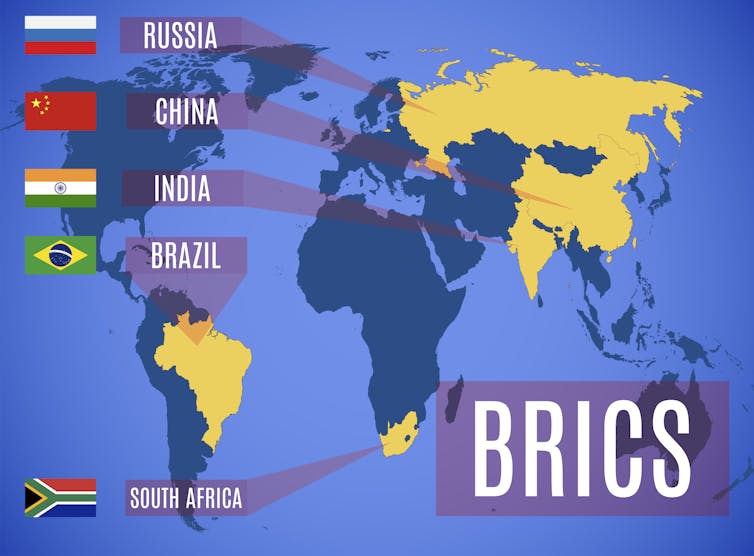Why the west needs to offer Brazil, India and South Africa a new deal
- Written by Jose Caballero, Senior Economist, IMD World Competitiveness Center, International Institute for Management Development (IMD)

The unwillingness of some countries[1] to back the west’s position on Ukraine is a wake-up call. Western leaders must now determine what they can offer to powerful states including Brazil, India and South Africa to keep them onside.
A new generation of alliances could begin to redistribute global power and grant emerging economies greater input into decisions that affect, and reflect, their interests. New alliances could also include fairer terms of trade and more effective development or aid[2] schemes.
This should help ensure the sustainability of a wider global alliance[3], for example, to back Ukraine. Currently the global consensus to back Ukraine seems to be fragmenting. For instance, despite Brazil’s support for several UN resolutions in Ukraine’s favour, it has not condemned Russia outright.
Brazil also rejected calls to send military materiel[4] to Ukraine. And during India’s time as a member of the UN security council, it abstained[5] on votes related to the conflict.
All of this is a sign of wider unhappiness with western leadership of global institutions and global decision making and is perceived, by some, as the west having too much power over other states.
Where does power lie?
International power is largely defined by the relative economic and military strengths of countries as well as historic influence. The UN[6] permanent security council membership, for instance, is based on post-second world war strengths.
Power relations are often described to be between superpowers or “great powers” and “non-great powers[7]”. These power gaps have led to large economies such as Brazil, India and South Africa being treated as less important[8] in international affairs.
Some argue that international institutions[9] such as the UN grant non-great powers a “bigger voice” to influence global affairs but simultaneously constrain their autonomy and deplete their already limited diplomatic resources. Their lack of a veto (only given to China, the UK, the US, France and Russia) often forces them to align their policy positions with those of superpowers.
This power structure ultimately leads to the marginalisation of states that may lack military strength but are considered economic forces[10] in their own right, such as Brazil, India and South Africa.
China v the west
Into this mix of resentment about historic inequalities of power, China has added its own agenda, and power play: to provide and enhance alternative sources of political and economic influence.
Right now, China is keen to show that it has more to offer[11] Brazil, India, South Africa and others than the west. An indication of this was that Brazilian president Luiz Inácio Lula da Silva’s visit to China[12] in April 2023 included many agreements and investment commitments.







